Social media users claim the Akufo-Addo government has led Ghana into the group of Heavily Indebted Poor Countries (HIPC).

Ghana’s listing on the World Bank website as a Heavily Indebted Poor Country (HIPC) dates back to 2002 and has remained so to date. Ghana completed the HIPC process in 2004 and according to the IMF, cannot reapply to the initiative.
Full text
Several members of the opposition National Democratic Congress (NDC) have made social media posts to the effect that the New Patriotic Party (NPP) government, led by President Akufo-Addo, has led Ghana into the being recognized as a Heavily Indebted Poor Country (HIPC).
Former President John Mahama reiterated the claim on Monday, October 26, 2020, while engaging some professionals ahead of the December 7 elections at the La Palm Royal Beach Hotel saying, “Ghana is back to HIPC status under Nana Akufo-Addo and Ken Ofori-Atta administration.”
One of the viral tweets making the claim is a tweet by the Member of Parliament for Wa Central and former Minister for Youth and Sports, Rashid Pelpuo.
“My God!! The NPP has sent Ghana to HIPC status through irresponsible overborrowing. We need to rescue Ghana… Spin doctors will deny this..,” his tweet reads.
What is HIPC?
According to a factsheet by the International Monetary Fund (IMF), Heavily Indebted Poor Country (HIPC) is a debt relief initiative launched in 1996 by the IMF and World Bank, with the aim of ensuring that no poor country faces a debt burden it cannot manage.
The initiative reduces the debt of countries that meet the strict criteria for such classification.
Criteria for benefiting from HIPC
To be eligible for HIPC, the World Bank says a country must;
1.Face sustainable debt situation after the full application of the traditional debt relief mechanisms (such as the application of Naples terms under the Paris Club agreement).
2. Be eligible for highly concessional assistance from the International Development Association (IDA) and for the IMF’s Poverty Reduction and Growth Trust (PGRT).
3. Have established a track record of reform and sound policies through IMF and World Bank-supported programs.
4 Establish a track record of reform and develop a Poverty Reduction Strategy Paper (PRSP) that involves civil society participation.
Ghana’s history with HIPC
Ghana has a known history with HIPC. In 2002 during the John Agyekum Kufuor led NPP administration, Ghana was listed as a HIPC and subsequently benefited from a comprehensive debt reduction package from the World Bank and the IMF.
The IMF announced in 2002 in a press release that Ghana was due to get $3.7 billion in debt relief through the HIPC initiative.
According to the Bank of Ghana, Ghana completed its HIPC initiative process in July 2004.
Political twist
Being classified as a heavily indebted poor country to most opposition parties in Ghana is an indication of mismanagement of the local economy and extreme levels of government borrowing.
This may explain the virality of the recent claims but how true it is in the first place that the Akufo-Addo government has led Ghana into HIPC.
Verification
The World Bank’s data portal which is referenced in the claim lists 39 countries including Ghana as Heavily Indebted Poor Countries (HIPC).
But is this enough to prove that the Akufo-Addo government has led Ghana into HIPC?
Following an email we sent to the IMF with regards to the claim, a Senior Communications Officer, Gediminas Vilkas responded that Ghana has not made any new application to the HIPC initiative and indeed “cannot apply again” since it has already completed the process.
He added that the update of Ghana’s debt-to-GDP ratio by the IMF “has NOT triggered any decision or action by the IMF.”
Further, through the Wayback machine which helps to track changes on websites by archiving its pages, we found that Ghana, even as at August 11, 2016, was listed on the World Bank’s data portal as being amongst HIPCs.
In the December 2014 update of the IMF on HIPC (Page 6), Ghana remained among the list of HIPCs when the NDC led by John Mahama was in power.
Further information in a March 2016 statistical update on HIPC (Page 5) by the IMF showed that Ghana was still in the list of HIPCs.
The World Bank’s most recent update, which was in August 2019 again included Ghana among the list of highly indebted poor countries and as recent as the IMF’s March 25, 2020 fact sheet, Ghana was still a part of the HIPC initiative.
It is important to note that the World Bank and IMF have in all their other reports on the initiative mentioned Ghana among the 39 countries identified as beneficiaries from the HIPC initiatives.
Chad is the latest country to have completed the initiative, in 2015, but it still remains in the list.
In other reports, Ghana is said to have its debts at high levels but there is no formal indication that the debts are at an unsustainable level after the full application of the traditional debt relief mechanisms required in addition to the other requirements for the HIPC initiative.
Conclusion
Although Ghana is duly captured on the World Bank’s data portal amongst HIPCs, that does not prove that the country has opted again to go into the HIPC initiative, in fact, that is impossible. Ghana and the other 38 countries that have gone through (including those still in the process of) the HIPC initiative have consistently featured on the World Bank data portal as HIPCs.
Ghana has featured since 2002 when it joined the program under former President Kufuor through the period of President Atta-Mills, President Mahama and now President Akufo-Addo.
…….
The reporter, Jonas Nyabor, produced this fact-check under the auspices of the Dubawa 2020 Fellowship in partnership with Citinewsroom to facilitate the ethos of “truth” in journalism and to enhance media literacy in the country.







